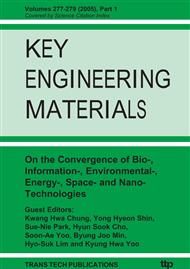[1]
American Association for the Advanced of Science. (1989). Science for All Americans. NY: Oxford Univ. Press.
Google Scholar
[2]
American Association for the Advanced of Science. (1992). Update Project 2061: Education for a Changing Future. Washington, DC: Author.
Google Scholar
[3]
Auerswald, E. (1995). The Changes of Paradigm; Self-Reflective Criticism, in Steffe. (Ed. ). Constructivism and Education, pp.439-446. Seoul: Hakjisa.
Google Scholar
[4]
Bateson, G., & Bateson, M. (1987). Angels Fear. NY: Macmillan.
Google Scholar
[5]
Bell, D. (1973). The Coming of Industrial Society. NY: Basic Books.
Google Scholar
[6]
Bertalanffy, L. (1952). Problems of Life. NY: Wiley.
Google Scholar
[7]
Bertalanffy, L. (1968). General System Theory. NY: George Braziller.
Google Scholar
[8]
Bruner, J. (1960). The Process of Education. Cambridge. MA: Harvard Univ. Press.
Google Scholar
[9]
Bruner, J. (1996). The Culture of Education. Cambridge. MA: Harvard Univ. Press.
Google Scholar
[10]
Bybee, R. & DeBoer, G. (1994). Research on Goals for the Science Curriculum, in Gabel (Ed. 1994). Handbook of Research on Science Teaching and Learning, pp.357-386. NY: Macmillan.
Google Scholar
[11]
Capra, F. (1982). The Turning Point. NY: Simon & Schuster.
Google Scholar
[12]
Chalmers, A. (1982). What is this thing called science? Univ. of Qweenland Press. Title of Publication (to be inserted by the publisher).
Google Scholar
[13]
Cho, H. (1998). The theoretical backgrounds and their implications for science education,. Journal of the Korean Association for Research in Science Education, 18(2), PP 183-200.
Google Scholar
[14]
DeBoer, G. (1991). A history of Ideas in Science Education. NY: Teachers college press.
Google Scholar
[15]
Hurd, P. D. (1958). Science literacy,. Educational leadership. 16. pp.13-16.
Google Scholar
[16]
Jenkins, E. (1991). History of Science Education,. In A. Lewy. (Ed. ). The International Encyclopedia of Curriculum. London: Pergamon Oxford.
Google Scholar
[17]
Kim, D., Kim, D.H., & Moon, T. (1999). System Dynamics. Seoul: Daeyoung.
Google Scholar
[18]
Kim, M. (2000). A Philosophical Study on the Paradigms of Science Education. KNUE: Master thesis.
Google Scholar
[19]
Kim, M. (2003). Narrative Natures of Science Teaching in the light of Polanyi's Epistemology. KNUE: PhD thesis.
Google Scholar
[20]
Layton, D. & Davey, A., & Jenkins, E. (1986). Science for Specific Social Purposes(SSSP) : Perspectives on adult scientific literacy,. Science Education, 13, pp.27-52.
DOI: 10.1080/03057268608559929
Google Scholar
[21]
Matthews, M. (1994). Science Teaching. NY. Routledge.
Google Scholar
[22]
National Science Teachers Association. (1982). Science-Technology-Society: Science Education for the 1980's. Washington: Author.
Google Scholar
[23]
National Science Teachers Association. (1991). NSTA position statement on science/technology/society. Washington, DC: Author.
Google Scholar
[24]
Pak, C. (1997). Systemology. Seoul; Bumyang-sa.
Google Scholar
[25]
Pak, S. (1980). The Science Education Research. Seoul national university press.
Google Scholar
[26]
Pak, S. & Cho, H. (1994). Science Education and Science. Seoul; Kyoyuk-Kwahak-Sa.
Google Scholar
[27]
Samsung Institute of Economics. (1997). Understanding and Application of Complex Science. Seoul; Author.
Google Scholar
[28]
Soh, W. (1998). The effects of science teachers Philosophical views on science and science content describing styles on the changes of middle school students, views on science. KNUE; PhD thesis.
Google Scholar
[29]
Stacey, R. (1996). Complexity and Creativity in Organizations. SF: Berrett - Koehler.
Google Scholar
[30]
Toffler, A. (1990). Power Shift. NY; Bantam books.
Google Scholar
[31]
Waldrop, W. (1992). Complexity. NY: Simon & Schuster.
Google Scholar
[32]
Yager, R. (1992). The Constructivist Learning Model: NSTA report, pp.15-17.
Google Scholar
[33]
Yager, R. & Weld, J. (1999). Scope, Sequence, and Coordination: The Iowa project, a national reform effort in the USA,. International Journal of Science Education, 21(2), 169-194.
DOI: 10.1080/095006999290778
Google Scholar
[34]
Yoon, S. (1996). A study on the Contextuality of the Science Education System. KNUE; PhD thesis.
Google Scholar


